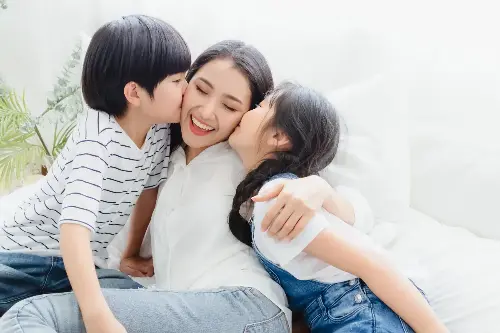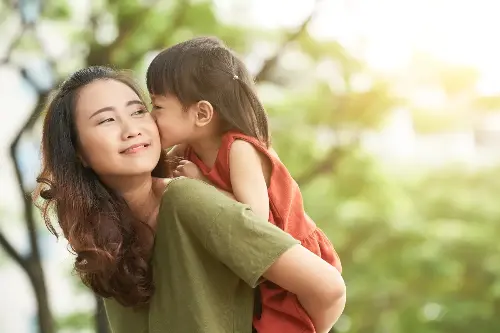The sacred journey of motherhood is a tapestry woven from countless threads of tradition, wisdom and evolving ideals. For thousands of years, the role of a mother has stood as a pillar in societies around the world — celebrated, honoured, and, at times, heavily prescribed by customs and expectations. In the 21st century, this journey continues to transform, shaped by both age-old beliefs and the fresh winds of change sweeping across our social landscapes.

HONOURING TRADITIONS: MOTHERHOOD ACROSS CULTURES
Motherhood has long been steeped in ritual and symbolism. In Japan, there are ‘Anzan’ talismans carried for safe childbirth. Nigerian communities host elaborate naming ceremonies known as ‘Ikomojade’, welcoming new life into the family. Indian mothers may observe ‘Godh Bharai’, a vibrant pre-birth celebration akin to a baby shower, where mothers are adorned in colourful saris and receive blessings.
These traditions aren’t simply ceremonial. They foster support networks, transmit values, and bind generations. For example, many indigenous communities in Australia practise ‘Welcome to Country’ rituals, enveloping mother and child in a sense of belonging. Even in modern Britain, the Sunday roast or afternoon tea often serves as a subtle family ritual, cementing familial bonds and passing down maternal wisdom.
Interestingly, research by the British Council found that British mothers are more likely than fathers to share stories about their own childhood and family history, reaching back through generations and affirming a sense of identity. In this way, motherhood acts as a living bridge between the past and present.
THE MODERN SPIN: CHANGING ROLES AND EXPECTATIONS
Yet, tradition is not static. Today’s mothers are navigating a delicate balance between inherited customs and contemporary realities. The modern world has introduced seismic shifts: more women than ever combine motherhood with professional careers, and parenting partnerships are increasingly diverse, encompassing single, same-sex and blended families.
One striking statistic is that in 2022, nearly 75% of British mothers with dependent children were in employment — a significant leap from decades past. The rise of remote work, shared parental leave, and flexible schedules reflects a society inching towards gender parity, at least in some areas. Fathers, too, are stepping into more nurturing roles, highlighting that the “motherhood” journey is, in today’s world, often shared.
Social media has become a new arena for the exchange of ideas, support, and even humour about motherhood. Online communities offer camaraderie, breaking down the isolating barriers that sometimes come with new parenting. However, this digital age also brings its own pressures; “mumfluencers” on Instagram can create unrealistic standards, a phenomenon researchers call ‘the motherhood perfectionism trap’.

NAVIGATING WELLBEING: PHYSICAL, EMOTIONAL AND MENTAL HEALTH
Motherhood, though celebrated, is also deeply complex. The World Health Organisation reports that approximately 10–13% of mothers worldwide experience postnatal depression. Greater collective awareness has led to improved support networks in many countries. In the UK, the NHS now routinely screens for postnatal depression, and a wave of “mum and baby” groups offer safe spaces for sharing both joys and challenges.
Cultural traditions, while valuable, can sometimes impede these conversations. In some communities, for example, the notion that mothers should be self-sacrificing may discourage women from seeking help. Yet, the growing public dialogue around maternal mental health is steadily chipping away at stigma, creating room for honest discussion and genuine support.
As for physical health, advances in medicine mean that mothers today are better supported than ever before, with dedicated prenatal and postnatal care. Nutrition, mental stimulation, and active lifestyles are championed by health professionals and community groups, helping mothers — and their children — to thrive.
THE RESILIENCE AND ADAPTABILITY OF MOTHERHOOD
Perhaps what stands out most across continents and centuries is the resilience of motherhood. Whether crafting bedtime stories from folklore, orchestrating school runs, or guiding teenagers through the maze of adolescence, mothers remain adaptive, resourceful and endlessly creative.
In many ways, the sacred journey of motherhood is a dance with change itself. It is negotiating tradition and innovation, drawing strength from the past while forging new bonds and building novel support systems.
For modern parents, the challenge and beauty lie in creating unique pathways — blending cherished rituals with fresh perspectives, and trusting that, like generations before, the heart of the maternal journey will always beat strongly: centred on love, guidance, and hope for the future.
Motherhood, then, isn’t just a role or a duty. It is a continuously evolving voyage — sacred, complex, and profoundly human. Whether anchored in tradition or buoyed by new opportunities, it remains the beating heart of every family and the enduring thread in the story of humanity.
